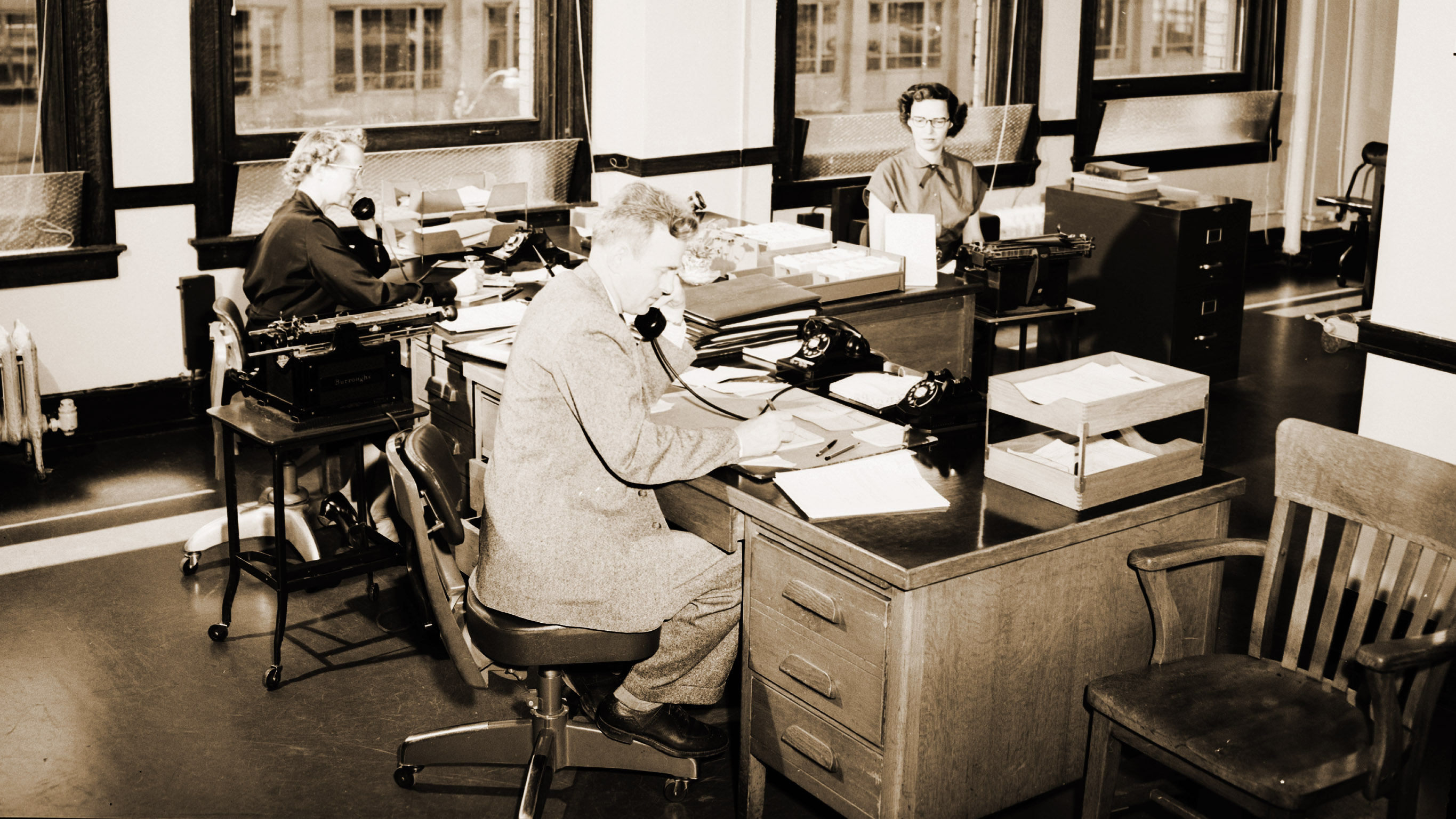Thrilled to See Standing Desks Debunked? You May Want to Sit Down…
If you’ve been under a rock for the last year, newsflash: Sitting is slowly killing us. And standing desks — which promise to keep us glued to our computers while upping our activity levels — are the trendy answer to an office culture of lethargy.
A recently published review of studies on standing desks now has journalists questioning the science and presumed health benefits of standing while working. “Standing Desks May Not Be Healthier Than Sitting All Day,” heralded a headline at Fortune.com. Minnesota Public Radio declared that “Standing Up At Work Isn’t All It’s Cracked Up to Be.”
One problem: The new study doesn’t even examine the health benefits of standing.
Rather, the analysis, which was released yesterday, examined 20 different previous studies on how standing desks and other workspace interventions (think everything from sit-stand combination desks to workstation treadmills) influenced office behavior. With a total of 2,174 participants, they came to two critical conclusions.
First, while standing desks increased workers’ upright time — they stood, on average, 30 minutes to two hours more than workers without the desks — participants used them sparingly. Indeed, most standing desk enthusiasts still fell far below the four hours of standing recommended by health professionals.

Former Secretary of Defense Donald Rumsfeld liked to use a standing desk. Was science on his side? Visual: Department of Defense
Secondly, the researchers found problems with most of the previous studies, which contained few participants and were poorly designed. Those popular sit-stand desks that many office workers are now familiar with had particularly dubious empirical support, the researchers noted. “There is very low quality evidence that sit-stand desks can reduce sitting at work at the short term,” they wrote.
NPR’s Health Shots blog covered the study with the snide title: “Stand To Work If You Like, But Don’t Brag About The Benefits.” The author extended the piece to look not just at whether people used their standing desks, but whether standing — in and of itself — was as beneficial as many believe, something not covered in the review. “What we actually found is that most of it is, very much, just fashionable and not proven good for your health,” Dr. Jos Verbeek, one of the study’s authors, told NPR.
The UK’s Daily Mail, per usual, took the hype even further. “Are standing desks a waste of time?” read their headline. “Standing instead of sitting ‘hardly increases energy levels so won’t help people lose weight,’” the tabloid declared.
How much of this was in the actual study? Essentially none.
In contrast, Stat News, produced measured coverage. Their contribution, “Despite your fancy standing desk you’re still sitting too much,” examines the evidence presented in the review point by point. Studies on how people use standing desks are so sparse and incomplete that, according to Stat News, it’s impossible to make any judgements. “Just because there’s a lack of good evidence doesn’t mean that standing desks, or other interventions, don’t work,” the article concludes.
There’s been a lot written about the problems of over-hyped press releases misrepresenting the results of studies, swaying journalists to more hysterical coverage. But that’s not the case here. The press release on this study is descriptive and balanced. It does, however, offer a hint where the misleading coverage is coming from, in a quote from Verbeek, whose comments reach far beyond the evidence at hand:
“Standing instead of sitting hardly increases energy expenditure, so we should not expect a sit-stand desk to help in losing weight,” he says in the release.
And, even though the release specifically makes the point that the study did not find standing to produce harmful effects, “such as musculoskeletal pain, varicose veins or a decrease in productivity,” Verbeek contradicts that point in his comments to NPR. “The idea you should be standing four hours a day? There’s no real evidence for that,” the site quoted him as saying. “I would say that there’s evidence that standing can be bad for your health.”
This may or may not be true, but again, the question wasn’t directly examined in this study.
It’s easy to understand the journalistic impulse to jump on the debunking angle. After all, the idea that our fancy, costly standing desks don’t actually work is sexy and fresh. (Join me as we laugh at the fools who shelled out for them!) The truth — that even when offered a standing option, we still prefer to sit — shifts the blame somewhat from the desk to the people using them (or not). Less sexy, less fresh.
The thing is, there’s still something to be written about the health benefits of standing desks. Proponents of the desks consistently bring up a 1953 study published in the journal Lancet, which looked at London transit workers. Back then, researchers found that drivers, who spent their workdays sitting, had far higher rates of coronary disease than conductors, who spent their workdays standing.
But since then, there’s been limited work on the cardiovascular benefits of standing versus sitting — and much of the research has only been completed in animal models.
How much does standing impact our cardiovascular health? Where does the magical four-hour-per-workday standing recommendation come from? As employers continue to redesign workplaces, these are important questions — but they are very different from the questions the current researchers set out to answer.











Comments are automatically closed one year after article publication. Archived comments are below.
Aside from the 1953 study, has anyone looked at health effects of jobs that already require lengthy standing — teaching, cafeteria workers, and so forth?